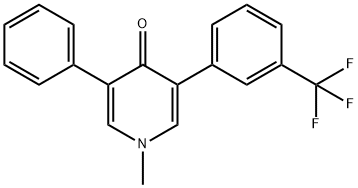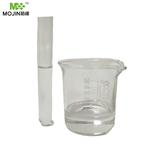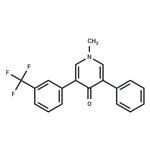Chemical Properties
White to tan crystalline solid. Some commercial formulations are a light tan viscous liquid, possibly in
a propylene glycol carrier. Slight odor.
Chemical Properties
Fluridone is white to pale yellow solid
Uses
Fluridone, is a new herbicide for aquatic plants, such as Curlyleaf pondweed (Potamogeton crispus) in lakes.
Definition
ChEBI: Fluridone is a phenylpyridine. It has a role as a carotenoid biosynthesis inhibitor.
Agricultural Uses
Fluridone can be used as herbicide: Used is horticulture, ornamental, aquatic and greenhouse environments. It is used as an aquatic herbicide to treat large areas of water (lakes, ponds, reservoirs, etc.) for Eurasian watermilfoil.
Trade name
AVAST®; EL 171®; PRIDE®; SONAR®;
SONAR AS®
Potential Exposure
Organic fluoride herbicide used is hor ticulture, ornamental, aquatic and greenhouse environ ments. It is used as and auatic herbicide to treat large areas
of water (lakes, ponds, reservoirs, etc.) for invasive
Eurasian watermilfoil. Not used on food crops.
Shipping
UN3077 Environmentally hazardous substances,
solid, n.o.s., Hazard class: 9; Labels: 9-Miscellaneous haz ardous material, Technical Name Required.
Incompatibilities
Decomposes in temperature>200℃.Incompatible with oxidizers (chlorates, nitrates, peroxides,
permanganates, perchlorates, chlorine, bromine, fluorine,
etc.); contact may cause fires or explosions. Keep away
from alkaline materials, strong bases, strong acids, oxoa cids, epoxides.
Waste Disposal
Safe Disposal of Pesticides.
An empty pesticide container can be as hazardous as a full
one because of residues left inside. Never reuse such a con tainer. When empty, a pesticide container should be rinsed
carefully three times and rinse the water thoroughly drained
back onto the sprayer or the container previously used to
mix the pesticide. Use the rinse water as a pesticide, fol lowing label directions. Replace the cap or closure
securely. Dispose of the container according to label
instructions. Do not puncture or burn a pressurized con tainer like an aerosol—it could explode. Do cut or puncture
other empty pesticide containers made of metal or plastic
to prevent someone from reusing them. Wrap the empty
container and put it in the trash after you have rinsed it.
Do not discharge into drains or sewers. Dispose of waste
material as hazardous waste using a licensed disposal con tractor to an approved landfill. Consult with environmental
regulatory agencies for guidance on acceptable disposal
practices. In accordance with 40CFR165, follow recom mendations for the disposal of pesticides and pesticide con tainers. Containers must be disposed of properly by
following package label directions or by contacting your
local or federal environmental control agency, or by con tacting your regional EPA office.





